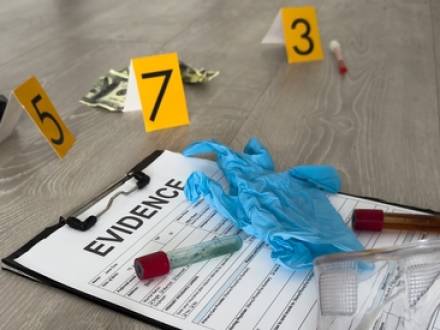How Do Attorneys Fight the Prosecution's Evidence?
 If you have been charged with a crime, you already know that it feels like the odds are stacked against you. The police report might sound convincing, and prosecutors often act as though the case is already proven. But evidence is not always what it appears to be. A skilled Illinois criminal defense attorney knows that challenging the prosecution’s evidence can completely change the outcome of a case.
If you have been charged with a crime, you already know that it feels like the odds are stacked against you. The police report might sound convincing, and prosecutors often act as though the case is already proven. But evidence is not always what it appears to be. A skilled Illinois criminal defense attorney knows that challenging the prosecution’s evidence can completely change the outcome of a case.
If you are facing criminal charges, do not give up. Call Ramsell & Kunowski, L.L.C. today to see what we can do for you.
What Does "Probable Cause" Mean in a Criminal Case?
The U.S. Constitution protects every person from unreasonable searches and seizures under the Fourth Amendment. This means that before police can arrest someone or search their home, vehicle, or phone, they must have probable cause. Probable cause is a reasonable belief, supported by facts, that a crime was committed.
If an arrest or search is made without probable cause or a valid warrant, any evidence gathered afterward can be challenged. For example, if an officer searched a car without a legal reason and found drugs, a defense attorney may file a motion to suppress that evidence. If the court agrees, the prosecution may no longer be able to use it, which could lead to a dismissal or a much better plea deal.
When Can Evidence Be Suppressed in Court?
There are several situations where evidence may be ruled inadmissible, meaning the judge decides it cannot be shown to a jury.
Evidence can be disallowed when:
-
It was obtained illegally, such as through an unlawful search or arrest.
-
The chain of custody was broken, meaning the evidence was mishandled or not properly documented.
-
It is hearsay, which means it is based on secondhand information that the original speaker cannot verify in court.
-
It violates a defendant’s Miranda rights, which require police to inform someone of their right to remain silent and have an attorney with them during questioning.
When evidence is suppressed, prosecutors often have to rethink their entire case. Sometimes they can continue, but often they must drop or reduce the charges.
How Do Defense Attorneys Challenge Evidence?
A good defense attorney begins by carefully reviewing police reports, video footage, witness statements, and forensic results. The attorney looks for inconsistencies or legal violations that could weaken the state’s case.
For example, if a breathalyzer machine in a DUI case was not calibrated correctly, the results may be unreliable. If a witness changes their story or has a reason to lie, their credibility can be attacked in court. Attorneys also work with experts who can reexamine DNA samples, accident reconstructions, or digital evidence.
By presenting these findings to the judge, a defense lawyer can show that there is reasonable doubt of the defendant's guilt, making a conviction much less likely.
When Can a Criminal Case Be Appealed?
Even after a conviction, a criminal case may not be over. An appeal is a request for a higher court to review the case to determine if legal errors affected the outcome. One of the most common reasons for a successful appeal is improperly admitted or excluded evidence. Incorrect jury instructions may also allow for an appeal to be filed, as can the trial court’s misapplication of the law.
At Ramsell & Kunowski, L.L.C., we have a strong appeals division that handles cases involving disputed facts or unfair procedures. A successful appeal can lead to a new trial, a reduced sentence, or even a full reversal of the conviction.
Contact a Schaumburg, IL Criminal Defense Attorney
If you are facing criminal charges, contact an aggressive Naperville, IL criminal defense lawyer at Ramsell & Kunowski, L.L.C.. With decades of combined experience and more than 20,000 cases handled, our fearless lawyers know how to find weaknesses in even the toughest prosecutions.
We are available 24 hours a day and offer confidential consultations. Call 630-786-6062 now so we can get started on building your defense.




